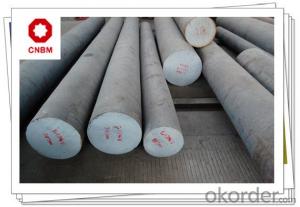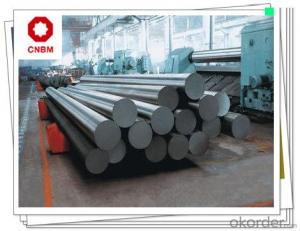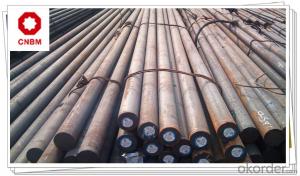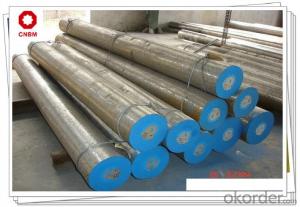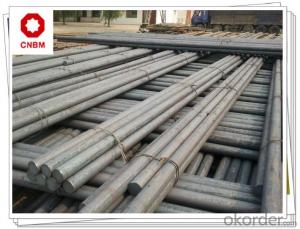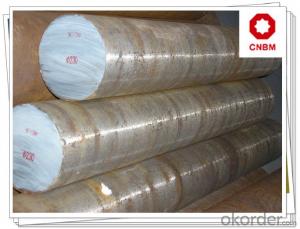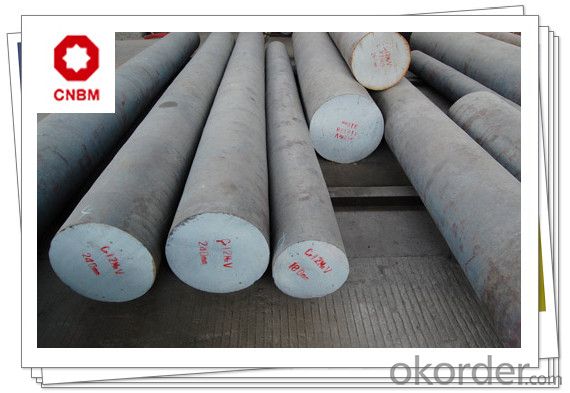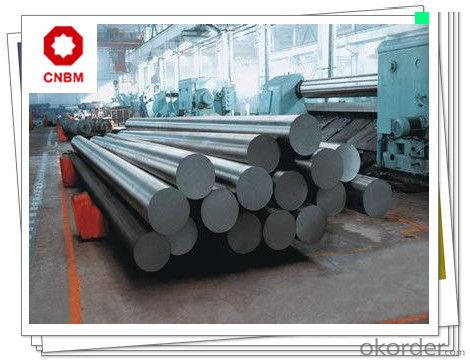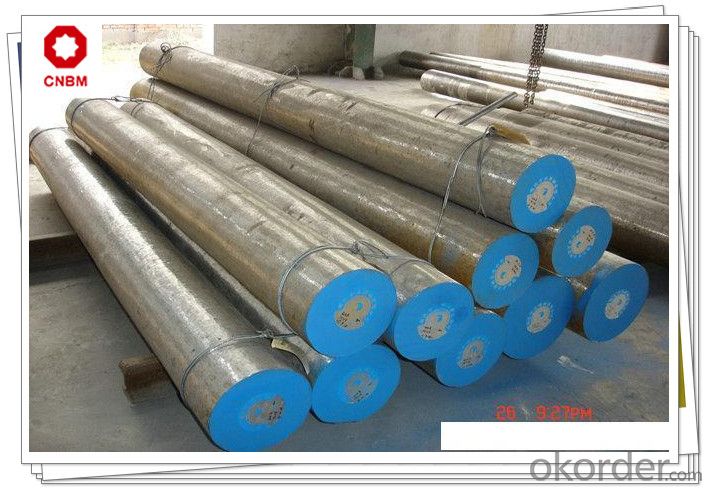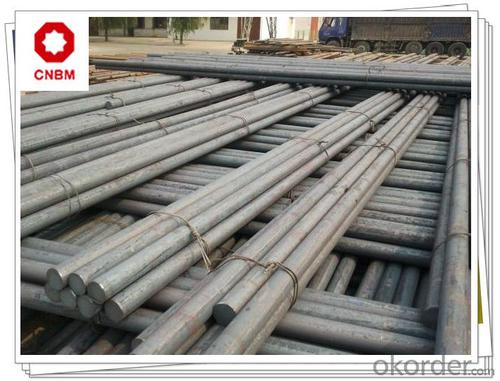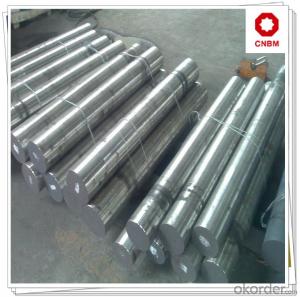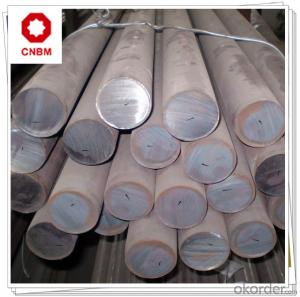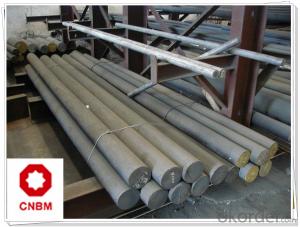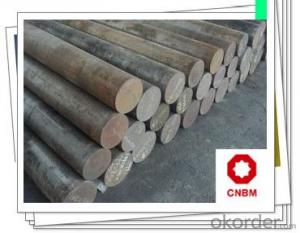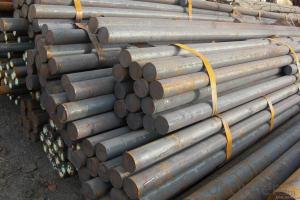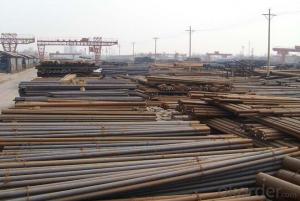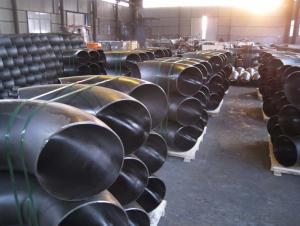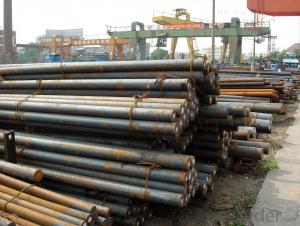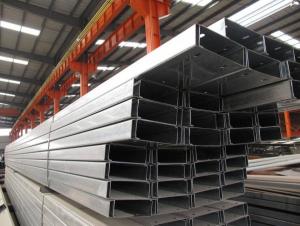C45 Density of Carbon Steel
- Loading Port:
- Shanghai
- Payment Terms:
- TT OR LC
- Min Order Qty:
- 30 m.t.
- Supply Capability:
- 120000 m.t./month
OKorder Service Pledge
OKorder Financial Service
You Might Also Like
C45 Density of Carbon Steel
Specification
1, Diameter: 8mm-250mm rounds
5mm-9mm rods
2, Length: 2m, 3m, 5.8m, 6m or customized
3, Standard: GB, ASTM, AISI, SAE, DIN, JIS, EN
OEM technology - send detailed technical parameters for accurate quotation.
2, Produce Process: smelt iron - EAF smelt billet - ESR smelt billet -
hot rolled or forged to get the steel round bar and plate
3, Heat Treatment: annealing, normalizing, tempering, quenching
4, Surface Treatment: Black, Polished, Galvanized
5, Quality Assurance: We accept third party inspection for all orders.
You can ask testing organizations such as SGS, BV, etc. to test our products before shipping.
Chemical Component
| C | Si | Mn | P | S | Cr | Ni | Cu |
| 0.42~0.50% | 0.17~0.37% | 0.50~0.80% | ≤0.035% | ≤0.035% | ≤0.25% | ≤0.25% | ≤0.25% |
Products Show
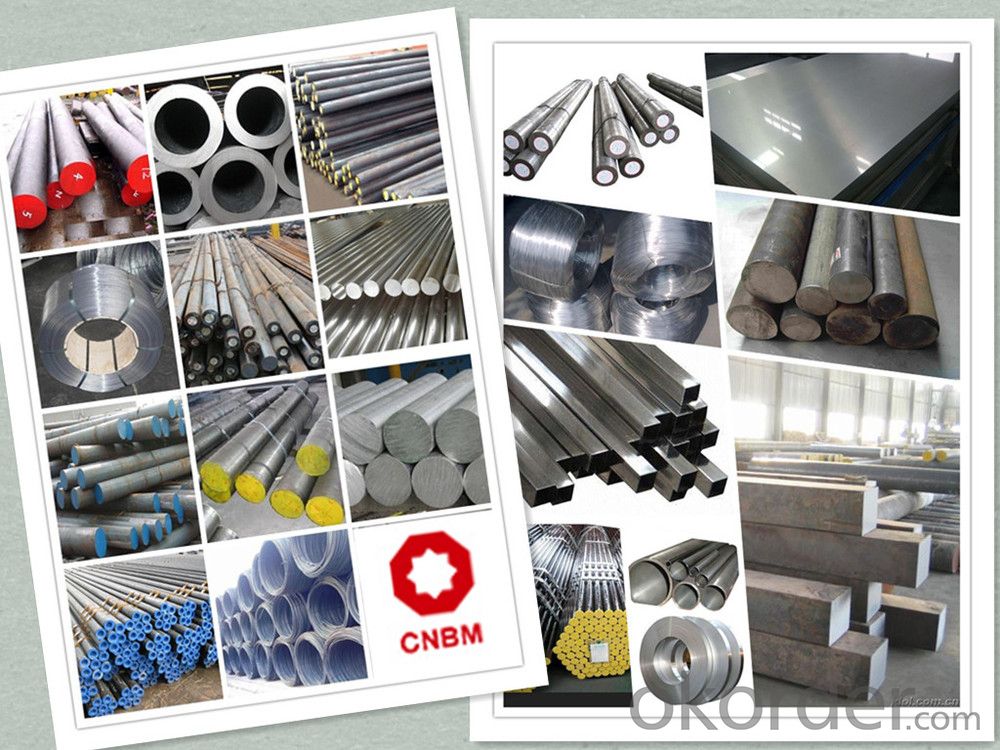
Work Shop
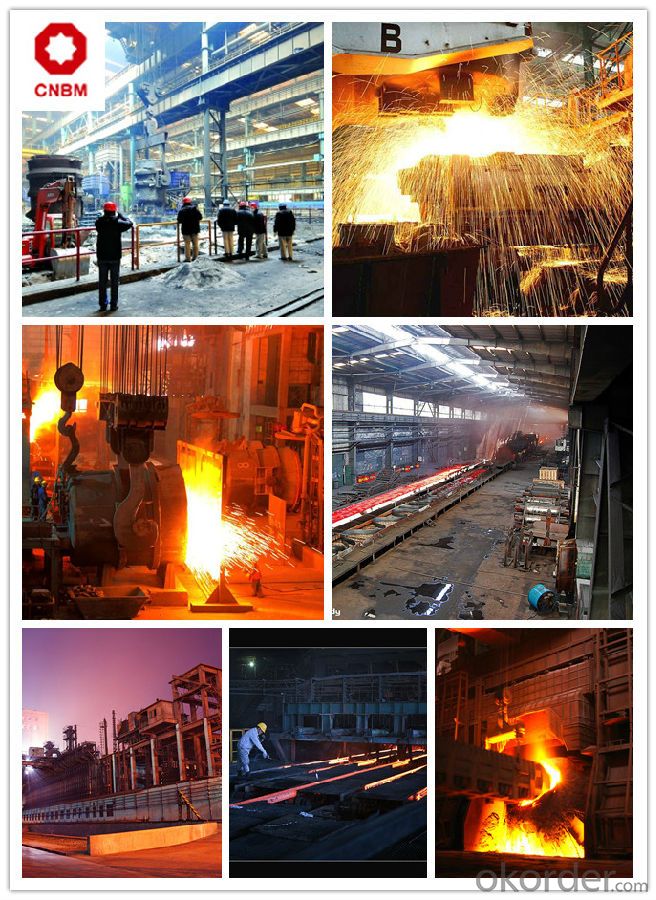
Company Information
CNBM International Corporation is the most important trading platform of CNBM group.
Whith its advantages, CNBM International are mainly concentrate on Cement, Glass, Iron and Steel, Ceramics industries and devotes herself for supplying high qulity series of refractories as well as technical consultancies and logistics solutions.

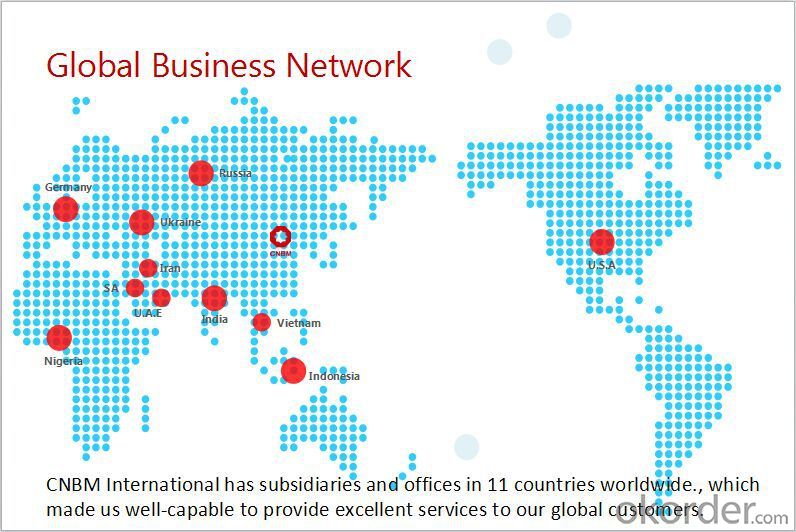
FAQ
1, Your advantages?
professional products inquiry, products knowledge train (for agents), smooth goods delivery, excellent customer solution proposale
2, Test & Certificate?
SGS test is available, customer inspection before shipping is welcome, third party inspection is no problem
3, Factory or Trading Company?
CNBM is a trading company but we have so many protocol factories and CNBM works as a trading department of these factories. Also CNBM is the holding company of many factories.
4, Payment Terms?
30% TT as deposit and 70% before delivery.
Irrevocable L/C at sight.
5, Trading Terms?
EXW, FOB, CIF, FFR, CNF
6, After-sale Service?
CNBM provides the services and support you need for every step of our cooperation. We're the business partner you can trust.
For any problem, please kindly contact us at any your convenient time.
We'll reply you in our first priority within 24 hours.
Packaging & Delivery
1, Packaging: seaworthy package or as required
2, Delivery: 35-45 days or based on quantity
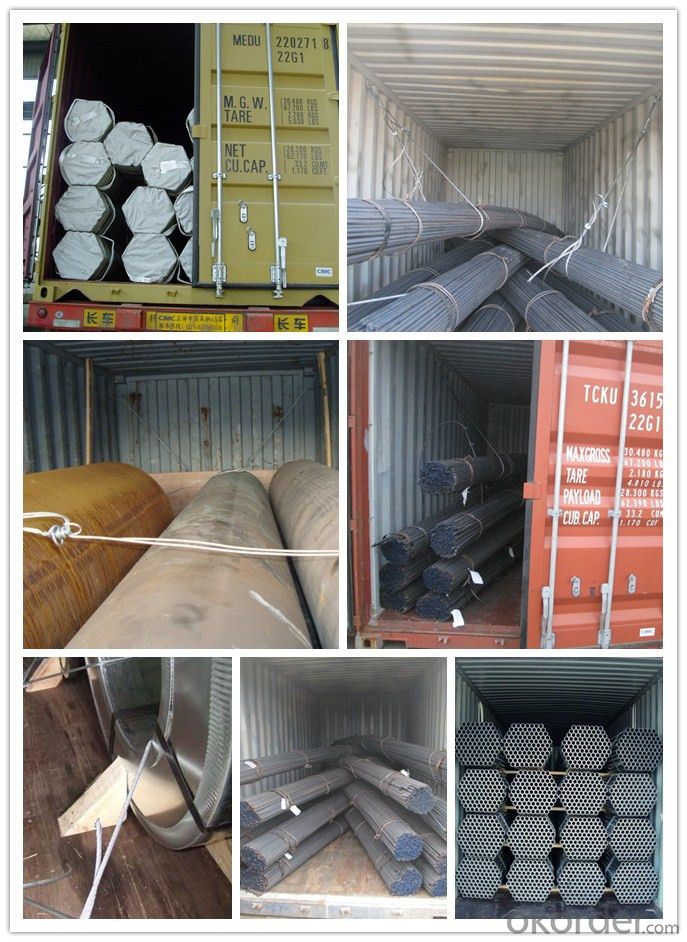
- Q: Can steel round bars be used for making molds?
- Steel round bars can be used for making molds, but it may not be the most common or ideal choice of material. Steel round bars are typically used for structural applications or as support components. When it comes to making molds, other materials such as silicone, aluminum, or even specific types of steel molds are typically preferred. These materials offer better heat resistance, flexibility, and ease of use for molding purposes. That being said, if the steel round bars are properly machined, shaped, and treated, they can still be used to create simple molds for certain applications. However, it is important to consider the specific requirements of the mold, including the material being molded, the temperature and pressure conditions, and the desired finish of the final product, before deciding on the use of steel round bars.
- Q: What are the different types of steel round bar alloys for improved wear resistance?
- Some common types of steel round bar alloys that are known for improved wear resistance include tool steels, stainless steels, and alloy steels. These alloys are specifically designed to withstand wear and abrasion, making them suitable for various applications such as cutting tools, machinery components, and automotive parts.
- Q: Can steel round bars be machined using CNC equipment?
- Yes, steel round bars can be machined using CNC (Computer Numerical Control) equipment. CNC machines are capable of performing a wide range of operations on various materials, including steel round bars. These machines use computer programs to control the movement of the cutting tools, allowing for precise and accurate machining of the steel bars. CNC equipment can perform operations such as turning, milling, drilling, and threading on steel round bars, resulting in the desired shape, dimensions, and surface finish. Furthermore, CNC machines offer high repeatability, consistency, and efficiency, making them an ideal choice for machining steel round bars in industries such as automotive, aerospace, construction, and manufacturing.
- Q: What are the different grades of stainless steel round bars?
- There are several grades of stainless steel round bars, with the most common ones being 304, 316, and 410. These grades differ in their chemical composition, strength, and corrosion resistance properties, making them suitable for various applications in different industries.
- Q: What are the different types of surface treatments for steel round bars?
- Steel round bars can be treated in several ways to enhance their properties and suit different applications. Some commonly used treatments for steel round bars include: 1. Zinc coating, also known as galvanization, provides excellent corrosion resistance. It is often used in outdoor and marine applications. 2. Black oxide coating chemically converts the surface of the steel round bars to a black iron oxide layer, offering enhanced corrosion resistance and an attractive black finish. This treatment is popular for decorative purposes. 3. Grinding is a surface treatment that involves using abrasive materials to remove the outer layer of the steel round bars. This process improves the surface finish, making them smoother and more visually appealing. 4. Shot blasting involves propelling small metallic or non-metallic particles at high velocity onto the surface of the steel round bars. It effectively removes impurities like mill scale and rust, resulting in a clean and uniform surface. 5. Chrome plating deposits a layer of chromium onto the surface of the steel round bars, providing excellent corrosion resistance and a polished, mirror-like finish. This treatment is commonly used when aesthetics and corrosion resistance are important. 6. Powder coating involves applying a dry powder electrostatically to the steel round bars, which is then cured under heat. This treatment creates a durable and visually appealing finish that is resistant to corrosion, chemicals, and UV rays. 7. Passivation is a chemical treatment that removes iron and other contaminants from the surface of the steel round bars. It leaves behind a clean and corrosion-resistant layer. Passivation is particularly important in industries such as medical and food, where cleanliness and corrosion resistance are crucial. These examples highlight the range of surface treatments available for steel round bars. The choice of treatment depends on specific requirements such as corrosion resistance, aesthetics, and durability.
- Q: Can steel round bars be used in the manufacturing of home decor?
- Yes, steel round bars can definitely be used in the manufacturing of home decor. Steel round bars are versatile and durable materials that can be shaped, welded, and manipulated into various forms and designs. They can be used to create decorative elements such as candle holders, wall art, sculptures, furniture accents, and more. Steel round bars can be polished, painted, or left in their natural state to suit different interior design styles. Additionally, steel is a strong and long-lasting material, making it ideal for home decor items that need to withstand regular use and maintain their appearance over time.
- Q: How do steel round bars compare to glass round bars?
- Steel round bars and glass round bars are two different materials with distinct properties and applications. Here's how they compare: Strength and Durability: Steel round bars are known for their exceptional strength and durability. They have a high tensile strength and can withstand heavy loads and pressure without deformation. On the other hand, glass round bars are fragile and can break easily under stress or impact. They are not suitable for structural applications where strength is a crucial factor. Weight: Steel round bars are significantly heavier than glass round bars. While this can be an advantage in certain applications that require stability and support, it can also be a disadvantage in situations where lightweight materials are desired. Corrosion Resistance: Steel round bars are susceptible to corrosion, especially when exposed to moisture or harsh environments. However, they can be protected through coatings or alloys that enhance their corrosion resistance. Glass round bars, on the other hand, are not prone to corrosion and can be an ideal choice in corrosive environments. Transparency and Aesthetics: Glass round bars have the advantage of being transparent, allowing them to be used for decorative purposes or in applications where visibility is important. Steel round bars, being opaque, do not offer this characteristic. Thermal Conductivity: Steel round bars have a higher thermal conductivity compared to glass round bars. This property makes them more suitable for applications that require heat transfer or dissipation. Cost: Steel round bars are generally more affordable compared to glass round bars. Glass round bars, especially those made from specialized glass types, tend to be more expensive due to their production processes and limited availability. In conclusion, steel round bars are preferred for their strength, durability, and cost-effectiveness, making them suitable for structural applications. On the other hand, glass round bars offer transparency, aesthetic appeal, and corrosion resistance, making them suitable for decorative or specific applications where visibility is important. The choice between the two materials ultimately depends on the specific requirements and constraints of the project at hand.
- Q: What are the different types of steel round bars used in the manufacturing of tools?
- There are several types of steel round bars commonly used in tool manufacturing, including carbon steel, alloy steel, stainless steel, and tool steel. Each type has its own unique properties and characteristics, making it suitable for specific applications and requirements. Carbon steel round bars are strong and cost-effective, while alloy steel round bars offer enhanced strength, hardness, and wear resistance. Stainless steel round bars are corrosion-resistant and often used in tools requiring cleanliness and hygiene. Tool steel round bars are specifically designed for tool manufacturing, offering high hardness, toughness, and heat resistance.
- Q: What is the difference between a rough turned and a centerless ground steel round bar?
- A rough turned steel round bar refers to a steel bar that has been machined to a standard size and shape, typically using a lathe or turning machine. The process involves removing excess material from the bar's surface to achieve the desired diameter and smoothness. The resulting rough turned bar may still have slight imperfections or variations in size and surface finish. On the other hand, a centerless ground steel round bar undergoes a different manufacturing process. Centerless grinding involves feeding the steel bar through two rotating wheels: a grinding wheel and a regulating wheel. The grinding wheel removes material from the bar's surface to achieve a precise diameter, while the regulating wheel controls the bar's feed rate. This process ensures tight tolerances, excellent surface finish, and a uniform diameter along the entire length of the bar. In summary, the main difference between a rough turned and a centerless ground steel round bar lies in the manufacturing process and the resulting quality. While a rough turned bar is machined to a standard size and shape with some imperfections, a centerless ground bar undergoes a more precise grinding process to achieve a highly accurate diameter, excellent surface finish, and consistent dimensions throughout the bar.
- Q: What are the standard sizes of steel round bars?
- The standard sizes of steel round bars vary, but common diameters range from 1/4 inch to 12 inches.
Send your message to us
C45 Density of Carbon Steel
- Loading Port:
- Shanghai
- Payment Terms:
- TT OR LC
- Min Order Qty:
- 30 m.t.
- Supply Capability:
- 120000 m.t./month
OKorder Service Pledge
OKorder Financial Service
Similar products
Hot products
Hot Searches
Related keywords
